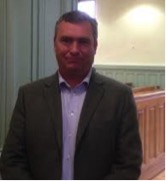
In a recent decision, Bonneville judges have sentenced Malcolm Erskine of British Ski Academy (BSA) to pay a 3 000€ fine for employing « unqualified » ski coaches in the French Alps.
The public prosecutor had requested a suspended 1 500€ fine during the hearing but judges didn’t follow that demand and more severely sentenced Malcolm Erskine to a 3 000€ fine. Mr Erskine immediately appealed against the decision.
The “Direction Départementale de la Cohésion Sociale” (DDCS, local representative of the French Ministry of Sport) proceeded to controls on the Les Houches pistes and asked the public prosecutor to engage legal actions against BSA due to the lack of declaration (under Free delivery of service or Freedom of establishment) and the employment of unqualified coaches.
The DDCS mentioned to the public prosecutor that without the declaration, they were unable to verify BSA’s coaches level of qualification. This incoherence, surprisingly, didn’t stop the judges from considering BSA’s coaches as unqualified to teach ski to British youngsters.
Nevertheless the Bonneville decision is of prime importance in that it implies that any sport coach intending to come and train his team in France must declare himself, prove his level of qualification and the fact that it meets the national standards.
This arises a whole new set of questions. Indeed if Malcolm Erskine’s coaches need to declare and prove their level of qualification to train their own team members in France then every single coach wishing to train, supervise teams / athletes in France must declare and hold the right qualification.
This decision clearly indicates that, from now on, French judges are ready to sentence to financial penalties – tomorrow to prison? – coaches that are undeclared and do not hold the suitable qualification. The ground for these convictions is safety, since French State considers that safety exclusively relies on the qualification of the professionals.
This decision is particularly restricting, since French legislation does not impose any particular period of time to comply with the above-mentioned obligations : any coach / trainer coming to France to coach / train his / her national, regional or local team for a 1 day competition, 1 week training session or 6 months period, and being paid to do so, must declare himself / herself to the local DDCS and prove his / her level of qualification prior to travelling to France; failing to do so, he/she will then be prosecuted.
All the tennis player’s coaches will therefor have to declare themselves before Rolland Garros starts; football team’s coaches participating in the UEFA championship this summer that are undeclared, will probably be prosecuted; this also applies for cyclists’ coaches during the Tour de France. Will these people be declared and will they have the correct qualification ? What are the consequences for the next international sport events taking place in France ?
It looks like French administration, in their obsession of enforcing the L.212-1, 8 & 11 Code du sport articles, have just stepped into a very tricky situation; aren’t these articles simply inapplicable ?
However,, in order to avoid violating the Code de procedure penale ’s (Penal code of procedure) 40th article, Préfets and Ministère des sports’s representatives are under the obligation of informing the public prosecutor of any offence they may be aware of. The public prosecutor will then have to prosecute the undeclared and incorrectly qualified coaches.
The Bonneville decision could be described as very ambitious in terms of state control of sporting activities but also as simply obsessional.
Leave A Reply!